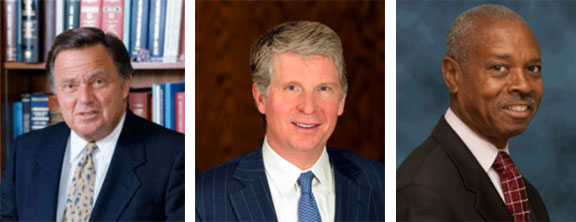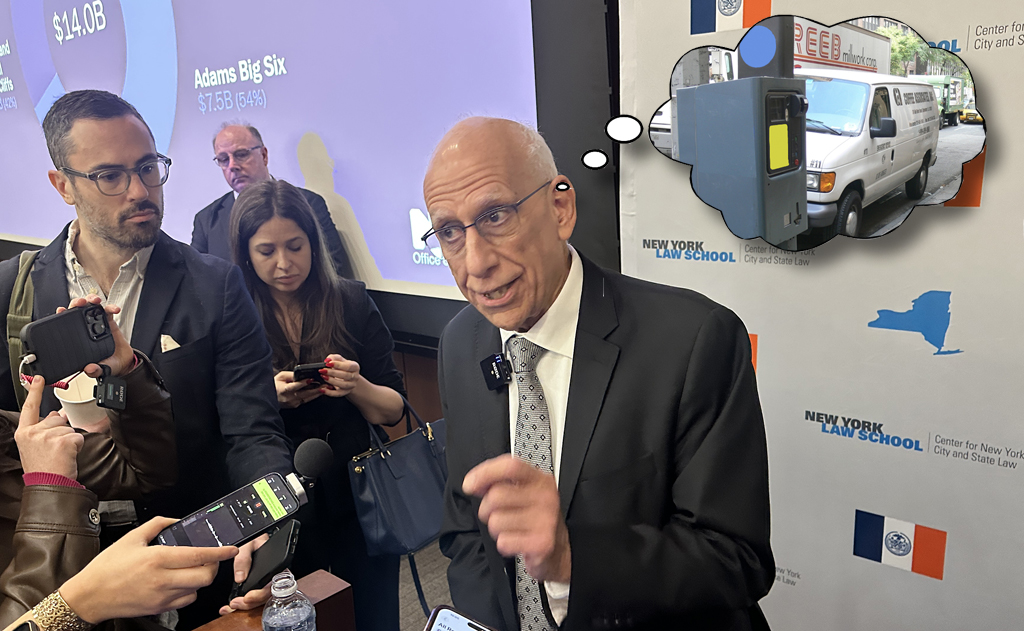
Among the demands Families For Safe Streets is making of district attorneys, one of the simpler changes is to stop using the word "accident" to describe traffic collisions. In exchanges this week, the offices of three district attorneys said in no uncertain terms that they already refrain from using the word "accident" in this manner. But that's not actually the case.
Even former Police Commissioner Ray Kelly eventually came to the conclusion that the words we use to describe traffic violence matter. He directed NYPD in 2013 to adopt the word "collision" instead of "accident," because "the term 'accident' has sometimes given the inaccurate impression or connotation that there is no fault or liability associated with a specific event." An "accident" is unavoidable, absolving people of responsibility, but a "crash" or "collision" has causes and can be traced to people's actions.
In statements, DAs seem to understand this and claim to have dropped the word "accident" years ago. But in practice, they continue to call it an "accident" whenever a driver kills someone without receiving any criminal charge -- which means the vast majority of the time.
"Prosecutors citywide have always called these cases 'crashes,'" said Terry Raskyn, a spokesperson for Bronx DA Robert Johnson. She credited pressure from DAs in getting both NYPD and the DMV to stop using "accidents" as an official term in 2013. "We’ve spent 20 years objecting at trial to the defense attorneys characterizing them as accidents," she said.
Yet in an accompanying statement explaining why he does not pursue charges against more drivers, Johnson said: "The legislature and the courts have outlined the rules for separating crimes from accidents. We go to great lengths to gather all available evidence in such cases, and then evaluate that evidence based on the state of the law. We make every effort to do as much as the law allows."
Johnson isn't the only district attorney so quick to discard the more neutral terminology. "Since DA Vance took office in 2010, this office has used the following terminology: crashes, collisions, and strikes," said Vance spokesperson Joan Vollero. "We do not use the word 'accident.'"
But when former Police Commissioner Howard Safir struck a woman before driving off in 2010, Vance's office described it as an "accident" before deciding not to pursue charges. When asked about vehicular violence in November, Vance himself said "a prosecution is not necessarily a following event after a tragic accident." And just yesterday, Vance fell back on the word "accident" three times to explain why he rarely prosecutes reckless drivers.
The story is similar in Queens. "The District Attorney’s Office has been using the term 'collision' rather than 'accident' for quite some time," said Kevin Ryan, a spokesperson for Queens DA Richard Brown. "[Assistant district attorneys] are instructed to use the term 'collision' in their reports whenever they are called to a crash site and are describing the incidents, not just in cases that result in criminal charges."
Not everyone got the memo. In a 2013 letter to Council Member Peter Koo about the crash that killed Allison Liao, who was struck by a turning driver while she held her grandmother's hand in a Flushing crosswalk, Queens Assistant District Attorney Charles A. Testagrossa explained away the DA's inaction by saying Allison's death was a mere accident. "This Office takes very seriously it’s [sic] responsibility to investigate and prosecute drivers whose criminal conduct results in death or serious injury on the roadways of Queens County," Testagrossa wrote. "There are occasions as in this matter, however, when accidents occur which are not the result of criminality."
What New York City's district attorneys actually seem to think is that they are the ultimate arbiters of what constitutes an "accident." If they don't file charges -- that is almost always the case when the driver is sober and stays at the scene -- then any fatal crash is just an accident to them.





